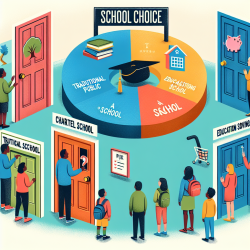Introduction
Community-based organizations (CBOs) play a crucial role in addressing health inequities, particularly in cancer care. However, practitioners within these organizations often face challenges in implementing evidence-based interventions (EBIs) due to limited access to capacity-building resources. A recent study, "Similar skills, different frames: a thematic analysis exploring conceptualizations held by community-based organization practitioners and academics regarding skills to use evidence-based interventions to address cancer inequities," sheds light on this issue and offers valuable insights for practitioners seeking to enhance their skills.
Understanding the Research
The study, conducted by an interdisciplinary team, involved interviews with practitioners and academics to explore how they conceptualize the core skills needed for effective EBI use. The research identified a set of essential skills, including engaging stakeholders, assessing needs, and implementing and sustaining EBIs. Additionally, new skills such as cultural humility and systems change were highlighted as critical components for addressing health inequities.
Key Findings and Implications for Practitioners
- Engaging Stakeholders: Effective engagement with community members and organizational partners is crucial. Practitioners should develop skills in relationship-building and strategic partner selection to ensure successful EBI implementation.
- Assessing Needs: Incorporating structural factors that drive inequities into needs assessments is vital. Practitioners should focus on understanding the broader context in which services are delivered to enhance the relevance and impact of EBIs.
- Adapting and Implementing EBIs: Skills in adapting EBIs to meet the specific needs of marginalized communities are essential. Practitioners should prioritize community engagement and communication to ensure EBIs align with local priorities and concerns.
- Cultural Awareness and Systems Change: Cultural humility and an understanding of systemic factors influencing health inequities are critical. Practitioners should focus on reducing implicit biases and leveraging community knowledge to enhance EBI effectiveness.
Encouraging Further Research and Development
The study highlights the need for alignment between practitioners and academics in conceptualizing EBI skills. By fostering open discussions and valuing diverse perspectives, practitioners can enhance their capacity to implement EBIs effectively. This collaborative approach can lead to the co-creation of capacity-building interventions that are relevant and impactful for CBOs.
Conclusion
By understanding and applying the insights from this research, practitioners can improve their skills in using EBIs to address cancer inequities. This, in turn, can lead to better health outcomes for underserved communities. For those interested in exploring the original research further, please follow this link: Similar skills, different frames: a thematic analysis exploring conceptualizations held by community-based organization practitioners and academics regarding skills to use evidence-based interventions to address cancer inequities.










